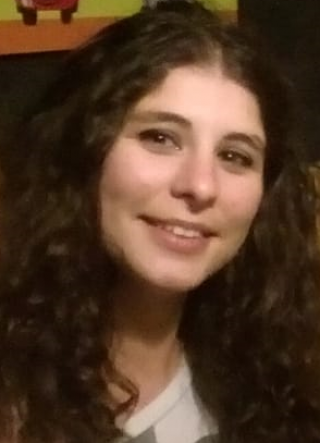Vanessa’s research explores the medieval understanding and appreciation of magic tricks, particularly sleight-of-hand and chemical tricks, preserved in medieval manuscript recipe collections as a form of domestic play and popular science, meaning a general rather than specialist engagement with science and scientific principles, in the Middle Ages. As both material chemical practices and interpersonal performances, magic tricks are a valuable tool for interrogating how late medieval Europeans negotiated their relationships with the physical world, deceit, and each other. Medieval magic tricks intersect with artisanal craft practices; elite dining culture and cooking practices; theatre and public performance; literature; and alchemy, science, and technology. They offer an avenue for the analysis of play and experimentation across a broad spectrum of medieval society, showing how the display and collection of chemical knowledge was integrated into the popular culture of medieval Europe.
Medieval magic tricks had a broad audience that cannot be differentiated by social or occupational setting. Recipes for entertaining chemical tricks were present in universities and monasteries, in the home and on the stage, at the banquet and in the kitchen. The experience of these tricks, and related phenomena such as pranks, required a specific relationship between the performer and audience. Combining the theory of active disbelief pioneered by modern magicians and the presentation of deceit in medieval literary genres, Vanessa argues that this relationship was predicated on a shared understanding of possibility underpinned by a willing consent to be deceived. Finally, Vanessa addresses the practical reality of magic tricks demonstrating that the properties of substances manipulated for magic tricks, such as mercury’s reactivity, were the same as those used by specialist craftsmen and alchemists. Across art technology, alchemy, and magic tricks, the same chemical process could be understood functionally, analytically, and ludically and consumed on a spectrum from practical procedure to intellectual record.
PhD
Supervisors: Sophie Page (first supervisor); John Sabapathy (second supervisor)
Working title: ‘A Cultural History of Magic Tricks in the Late Middle Ages’
Expected completion date: 2024
Publications
Articles and Chapters:
- ‘Playing with the mind: Magic Tricks in Late Medieval Europe’, Open Library of Humanities, forthcoming, January 2023
- ‘Using Theory-Based Approaches to Embed Evaluation within a Small Specialist Performing Arts Institution’, co-authored with Dr Jon Rainford, in Theory of Change: Debates and Applications to Access and Participation in Higher Education, edited by Samuel Dent, Anna Mountford-Zimdars, and Ciaran Burke, (Bingley: Emerald Publishing Limited, 2022), 81–99
Reviews:
- Un Coniglio nel Turbante, Lucia Raggetti, (Milan: Editrice Bibiliografica, 2021), Aries: Journal for the Study of Western Esotericism, forthcoming
- Theoretical and Empirical Investigations of Divination and Magic, Jesper Frøkjær Sørensen and Anders Klostergaard Petersen (Leiden and Boston: Brill, 2021.), Magic, Ritual, and Witchcraft, forthcoming
Blogs:
- ‘Medieval Magic Tricks: Jumping Rings, Running Eggs, and Twisting Chickens’, The Multimedia Craft of Wonder Blog, 3rd November 2021
- ‘Magic and Humour in the Late Middle Ages’, Inner Lives Blog, 15th August 2016
- ‘John Dee’s Crystal’, Welcome Collection, Early Medicine Blog, 19th July 2016
Conference and Seminar Presentations:
- ‘From workshop floor to the household and laboratory: Magic tricks as conduits of craft and chemical knowledge’, International Congress on Medieval Studies, Western Michigan University, forthcoming, 14th May 2022, Online
- ‘Magic tricks in Medieval Medical Manuscripts’ Consortium for History of Science, Technology, and Medicine - Medieval European Medical Manuscripts working group, 29th July 2021, Online
- The Secretum philosophorum: The fun in fooling the eye’ ‘Quo Vadis?’: Arts and Humanities Research in the 21st Century Conference, 21st July 2021, Online
- ‘Sleight of hand and dangerous stunts: Approaches to the history of illusionist magic’ Leeds International Medieval Congress, 9th July 2021, Online
- ‘Magic Tricks in the Late Middle Ages: Sources and Audiences’ History Lab (based at the Institute of Historical Research), 17th June 2021, Online
Conference and Seminar Organisation
- Conference co-convenor - Scientific Recreation / Recreational Science in Late Medieval and Early Modern Europe, 15th-16th July 2022
- Panel Convenor - ‘Models of the mind, moulds for behaviour: Using illusion to teach and to entertain in medieval Europe’, Quo Vadis?’: Arts and Humanities Research in the 21st Century Conference, 21st July 2021, Online
- Seminar Co-convenor of UCL Interdisciplinary Medieval and Renaissance Studies (IMARS) seminar https://www.ucl.ac.uk/medieval-renaissance-studies/seminars-lectures/imars. (2018 – Present)
Scholarships and Prizes
- RI Freer Prize Fellow (2022-2023)
Teaching (Postgraduate Teaching Assistant)
- Making History (2020- Present)
 Close
Close


